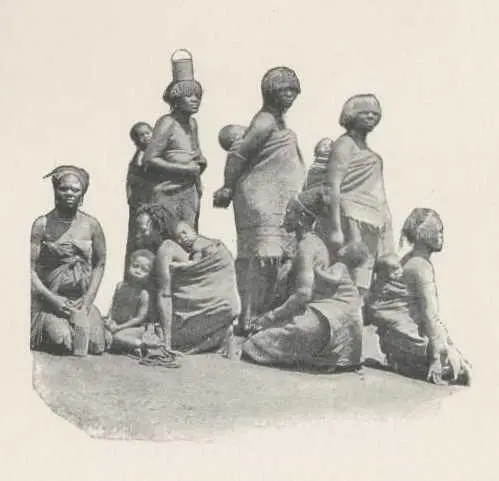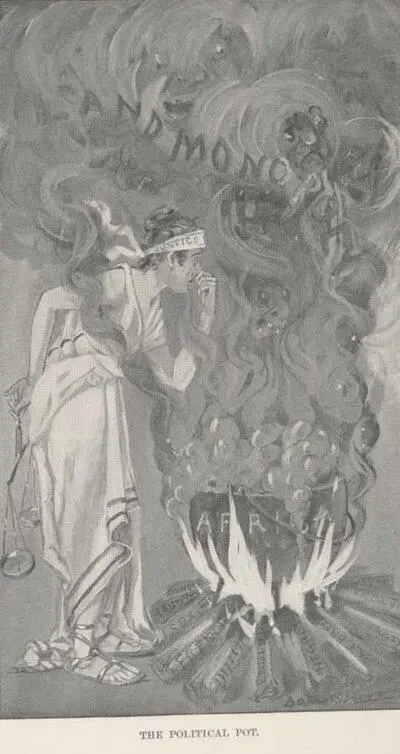Mark Twain - Following the Equator
Здесь есть возможность читать онлайн «Mark Twain - Following the Equator» весь текст электронной книги совершенно бесплатно (целиком полную версию без сокращений). В некоторых случаях можно слушать аудио, скачать через торрент в формате fb2 и присутствует краткое содержание. Год выпуска: 2004, Жанр: Классическая проза, Юмористическая проза, на английском языке. Описание произведения, (предисловие) а так же отзывы посетителей доступны на портале библиотеки ЛибКат.
- Название:Following the Equator
- Автор:
- Жанр:
- Год:2004
- ISBN:нет данных
- Рейтинг книги:3 / 5. Голосов: 1
-
Избранное:Добавить в избранное
- Отзывы:
-
Ваша оценка:
- 60
- 1
- 2
- 3
- 4
- 5
Following the Equator: краткое содержание, описание и аннотация
Предлагаем к чтению аннотацию, описание, краткое содержание или предисловие (зависит от того, что написал сам автор книги «Following the Equator»). Если вы не нашли необходимую информацию о книге — напишите в комментариях, мы постараемся отыскать её.
Following the Equator — читать онлайн бесплатно полную книгу (весь текст) целиком
Ниже представлен текст книги, разбитый по страницам. Система сохранения места последней прочитанной страницы, позволяет с удобством читать онлайн бесплатно книгу «Following the Equator», без необходимости каждый раз заново искать на чём Вы остановились. Поставьте закладку, и сможете в любой момент перейти на страницу, на которой закончили чтение.
Интервал:
Закладка:
From what I could learn, all that a man gets for this is merely the saving of his soul.
It all seems strange, incredible, impossible. But La Trappe knew the race. He knew the powerful attraction of unattractiveness; he knew that no life could be imagined, howsoever comfortless and forbidding, but somebody would want to try it.
This parent establishment of Germans began its work fifteen years ago, strangers, poor, and unencouraged; it owns 15,000 acres of land now, and raises grain and fruit, and makes wines, and manufactures all manner of things, and has native apprentices in its shops, and sends them forth able to read and write, and also well equipped to earn their living by their trades. And this young establishment has set up eleven branches in South Africa, and in them they are christianizing and educating and teaching wage-yielding mechanical trades to 1,200 boys and girls. Protestant Missionary work is coldly regarded by the commercial white colonist all over the heathen world, as a rule, and its product is nicknamed "rice-Christians" (occupationless incapables who join the church for revenue only), but I think it would be difficult to pick a flaw in the work of these Catholic monks, and I believe that the disposition to attempt it has not shown itself.
Tuesday, May 12. Transvaal politics in a confused condition. First the sentencing of the Johannesburg Reformers startled England by its severity; on the top of this came Kruger's exposure of the cipher correspondence, which showed that the invasion of the Transvaal, with the design of seizing that country and adding it to the British Empire, was planned by Cecil Rhodes and Beit—which made a revulsion in English feeling, and brought out a storm against Rhodes and the Chartered Company for degrading British honor. For a good while I couldn't seem to get at a clear comprehension of it, it was so tangled. But at last by patient study I have managed it, I believe. As I understand it, the Uitlanders and other Dutchmen were dissatisfied because the English would not allow them to take any part in the government except to pay taxes. Next, as I understand it, Dr. Kruger and Dr. Jameson, not having been able to make the medical business pay, made a raid into Matabeleland with the intention of capturing the capital, Johannesburg, and holding the women and children to ransom until the Uitlanders and the other Boers should grant to them and the Chartered Company the political rights which had been withheld from them. They would have succeeded in this great scheme, as I understand it, but for the interference of Cecil Rhodes and Mr. Beit, and other Chiefs of the Matabele, who persuaded their countrymen to revolt and throw off their allegiance to Germany. This, in turn, as I understand it, provoked the King of Abyssinia to destroy the Italian army and fall back upon Johannesburg; this at the instigation of Rhodes, to bull the stock market.

CHAPTER LXVI.
Every one is a moon, and has a dark side which he never shows to anybody.
—Pudd'nhead Wilson's New Calendar.
Jameson over the Border—His Defeat and Capture—Sent to England for Trial—Arrest of Citizens by the Boers—Commuted Sentences—Final Release of all but Two—Interesting Days for a Stranger—Hard to Understand Either Side—What the Reformers Expected to Accomplish—How They Proposed to Do it—Testimonies a Year Later—A "Woman's Part"—The Truth of the South African Situation—"Jameson's Ride"—A Poem
When I scribbled in my note-book a year ago the paragraph which ends the preceding chapter, it was meant to indicate, in an extravagant form, two things: the conflicting nature of the information conveyed by the citizen to the stranger concerning South African politics, and the resulting confusion created in the stranger's mind thereby.
But it does not seem so very extravagant now. Nothing could in that disturbed and excited time make South African politics clear or quite rational to the citizen of the country because his personal interest and his political prejudices were in his way; and nothing could make those politics clear or rational to the stranger, the sources of his information being such as they were.

I was in South Africa some little time. When I arrived there the political pot was boiling fiercely. Four months previously, Jameson had plunged over the Transvaal border with about 600 armed horsemen at his back, to go to the "relief of the women and children" of Johannesburg; on the fourth day of his march the Boers had defeated him in battle, and carried him and his men to Pretoria, the capital, as prisoners; the Boer government had turned Jameson and his officers over to the British government for trial, and shipped them to England; next, it had arrested 64 important citizens of Johannesburg as raid-conspirators, condemned their four leaders to death, then commuted the sentences, and now the 64 were waiting, in jail, for further results. Before midsummer they were all out excepting two, who refused to sign the petitions for release; 58 had been fined $10,000 each and enlarged, and the four leaders had gotten off with fines of $125,000 each with permanent exile added, in one case.
Those were wonderfully interesting days for a stranger, and I was glad to be in the thick of the excitement. Everybody was talking, and I expected to understand the whole of one side of it in a very little while.
I was disappointed. There were singularities, perplexities, unaccountabilities about it which I was not able to master. I had no personal access to Boers—their side was a secret to me, aside from what I was able to gather of it from published statements. My sympathies were soon with the Reformers in the Pretoria jail, with their friends, and with their cause. By diligent inquiry in Johannesburg I found out—apparently—all the details of their side of the quarrel except one—what they expected to accomplish by an armed rising.
Nobody seemed to know.
The reason why the Reformers were discontented and wanted some changes made, seemed quite clear. In Johannesburg it was claimed that the Uitlanders (strangers, foreigners) paid thirteen-fifteenths of the Transvaal taxes, yet got little or nothing for it. Their city had no charter; it had no municipal government; it could levy no taxes for drainage, water-supply, paving, cleaning, sanitation, policing. There was a police force, but it was composed of Boers, it was furnished by the State Government, and the city had no control over it. Mining was very costly; the government enormously increased the cost by putting burdensome taxes upon the mines, the output, the machinery, the buildings; by burdensome imposts upon incoming materials; by burdensome railway-freight-charges. Hardest of all to bear, the government reserved to itself a monopoly in that essential thing, dynamite, and burdened it with an extravagant price. The detested Hollander from over the water held all the public offices. The government was rank with corruption. The Uitlander had no vote, and must live in the State ten or twelve years before he could get one. He was not represented in the Raad (legislature) that oppressed him and fleeced him. Religion was not free. There were no schools where the teaching was in English, yet the great majority of the white population of the State knew no tongue but that. The State would not pass a liquor law; but allowed a great trade in cheap vile brandy among the blacks, with the result that 25 per cent. of the 50,000 blacks employed in the mines were usually drunk and incapable of working.
Читать дальшеИнтервал:
Закладка:
Похожие книги на «Following the Equator»
Представляем Вашему вниманию похожие книги на «Following the Equator» списком для выбора. Мы отобрали схожую по названию и смыслу литературу в надежде предоставить читателям больше вариантов отыскать новые, интересные, ещё непрочитанные произведения.
Обсуждение, отзывы о книге «Following the Equator» и просто собственные мнения читателей. Оставьте ваши комментарии, напишите, что Вы думаете о произведении, его смысле или главных героях. Укажите что конкретно понравилось, а что нет, и почему Вы так считаете.











